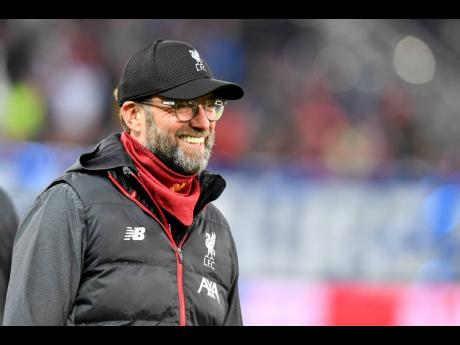Lessons from the Liverpool, Nike deal
Liverpool Football Club (LFC) is currently on course to win a first English Premier League title in 30 years, and as a fan, I couldn’t be happier. The Jurgen Klopp effect on Liverpool FC is noticeable, and he has taken, in large part, average players and made them superstars in his four years at the club. So it’s no longer a question of if Liverpool FC will win but rather how soon and can the club stay unbeaten for the season as well as win the Champions League.
With success comes additional funding through sponsorship as well as endorsements, gate receipts, merchandising, and so on. So you can understand why the Liverpool-Nike deal created its own off-the-field issues for the kit sponsor New Balance.
New Balance has been LFC kit sponsor since the 2015-16 season and was looking to renew its contract with the club come the end of this season; however, the Merseyside club chose to go with Nike. This caused New Balance to take the matter to court and eventually lose, paving the way for Nike to take over from New Balance on a proposed five-year contract worth £30million a year as reported by The Guardian newspaper. The main issue for New Balance was that LFC was obligated to honour the terms and conditions of the current deal, which indicated that New Balance is entitled to renew its sponsorship with LFC if it matches the “material, measurable and matchable terms” terms and conditions of any merchandise competitor’s offer to LFC.
TERMS MET
This case is very important because at the onset, New Balance argued that it could meet these “material, measurable and matchable terms” and be able to have Liverpool kits in several stores globally. Therefore the contract should be renewed for the 2020-21 season. You can understand why this is happening.
New Balance has been with the club since the rebuilding process, taking over from sports apparel and equipment manufacturer Warrior, and would now want to reap the rewards of its investment from LFC’s upcoming and expected success. Nike, on the other hand, as a global brand, recognises that this is an opportunity to sponsor what could be the most successful Liverpool FC team. For Liverpool FC and its owners, this is business. The club has struggled over the years and now has a good opportunity to rake in significant revenue not just from gate receipts, broadcast rights, and sponsorship, but also the very important kit sales, which are significant for any club. It is argued that the £30miillion per year is £15million less than £45milion New Balance deal, but LFC was attracted by approximately 20 per cent royalties.
There were other factors considered:
1. Store distribution – Nike argued that it could have the kits in “no less than 6,000 stores worldwide. LFC argued that made the deal unmatchable by New Balance and discredited the company’s figures in terms of possible stores and distribution. However, NB maintained that it could do so, to which the judge agreed.
2. Celebrity status – The proceedings also included a discussion around the many Nike celebrities such as LeBron James, Drake, and Serena Williams, who, NIKE argued could help to push sales. Sadly, for NB, this aspect was not included in their offer, and the judge deemed this very important.
In hindsight, New Balance could have addressed these areas when the contract was being negotiated at the onset. All LFC needed to do in this case was to show that New Balance could not match at least any one area, and that allowed them to accept the Nike deal. In the end, Justice Teare argued that “the New Balance offer on marketing was less favourable to Liverpool FC than the Nike offer”, paving the way for LFC to sign with Nike.
This case has taught many lessons on contract negotiations in sports as well as the work legal teams must put in place in negotiating these multimillion-dollar contracts. Whether New Balance is right by stating that LFC wanted to find any reason to leave the deal or it was simply a case of LFC seeking ways to maximise revenue, we may never know fully. However, it is clear there are lessons here for all of us.
Dalton Myers is a sports consultant and host of The Drive Phase Podcast. Email feedback to daltonsmyers@gmail.com or tweet @daltonsmyers.

